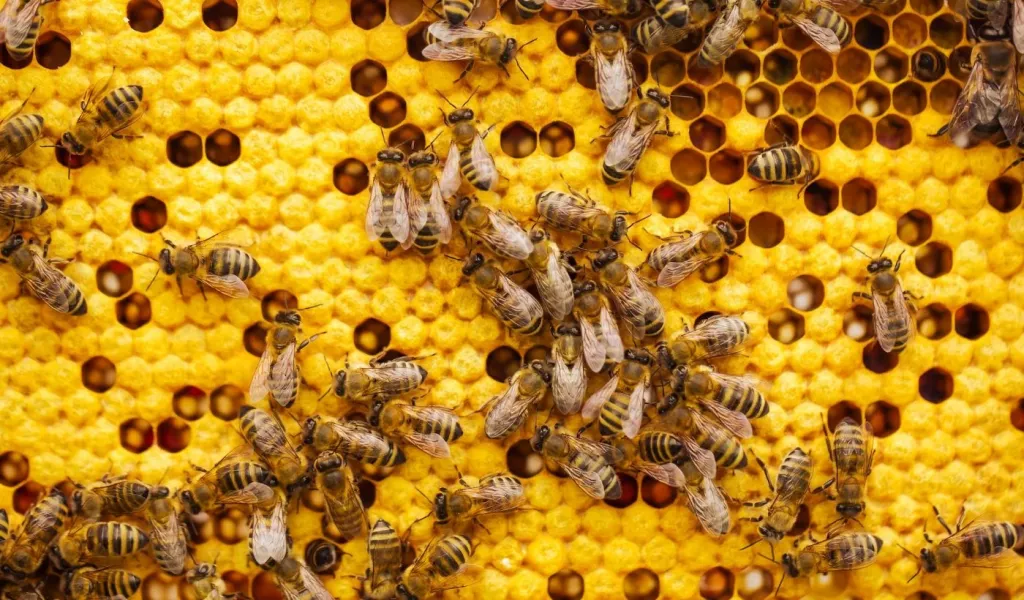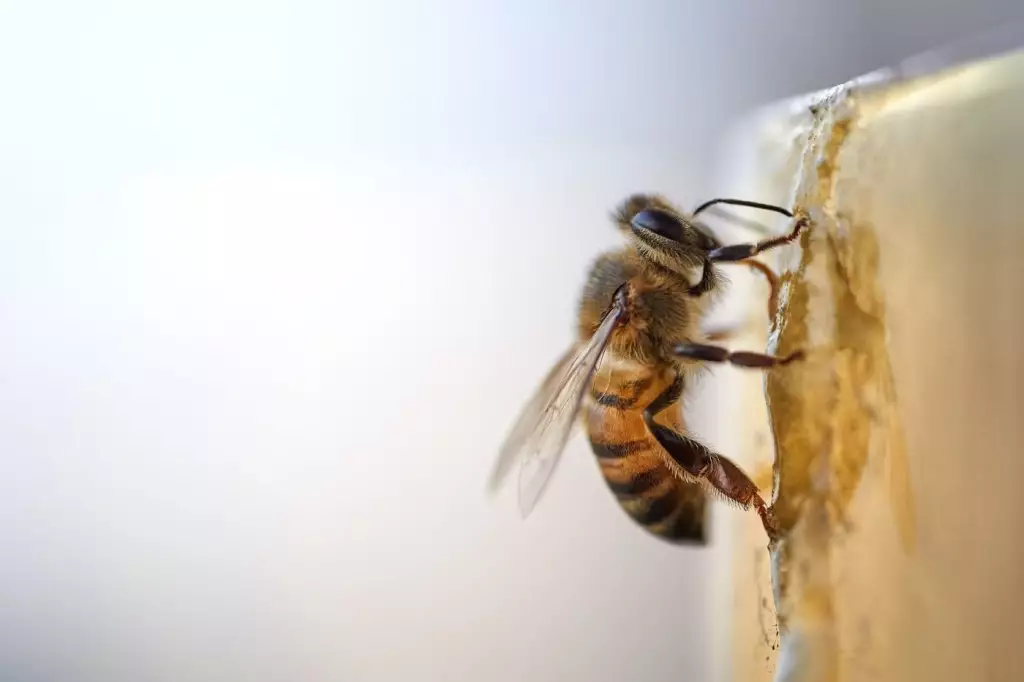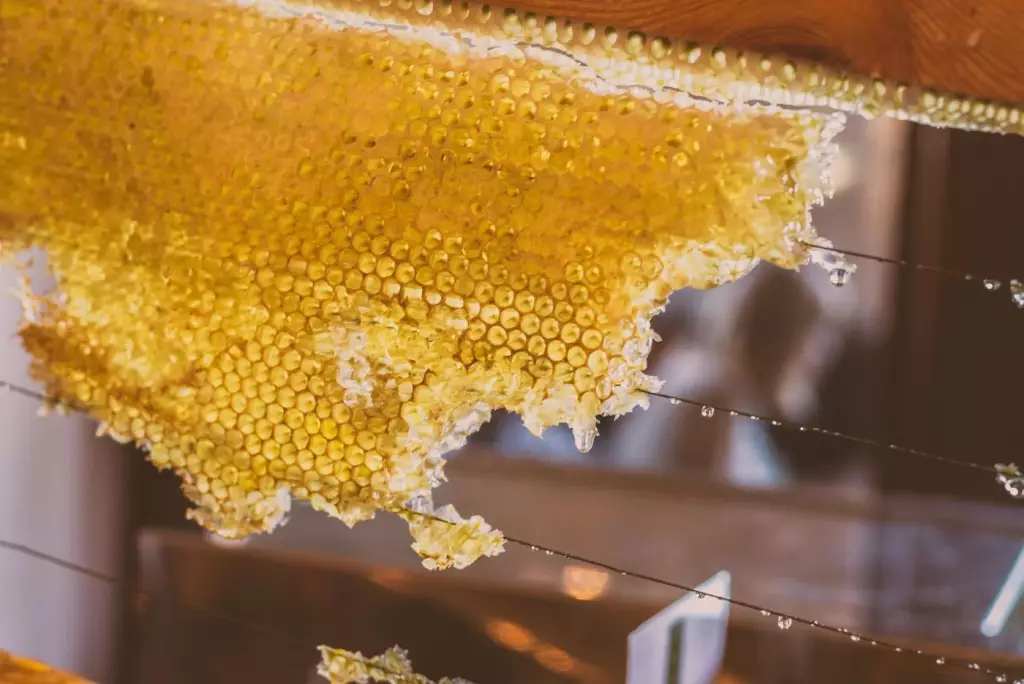Do Bees Eat Honey or Just Make It?
Honey has been a staple part of our diet as it offers us many health benefits. However, humans aren't the only beings that benefit from this sweet bee by-product; bees themselves do too. If you're curious to know if they eat their own-made honey, find out more below.
Bees don't just make honey; they eat it too. All bee species that make honey also consume it. Bees consume honey during winter when they cannot forage for nectar and pollen, and to fuel the drones for mating, and refuel the flight of the worker bees.
Honeybees are not the only species of bees that can produce honey, but they are, in fact, the largest honey contributor. Aside from the above-mentioned purposes, there are other reasons why bees consume their honey production, and this article will help you know more about them.
Summary
- Bees also eat the honey that they make.
- Bees consume honey for the following reasons: to feed the drones for mating, to fuel the flight of foragers, and as a nectar substitute during the winter months.
- Honey is produced via regurgitation and mouth-to-mouth transfer of the nectar from one bee to another until the water content is reduced, but it is not considered bee vomit or poop.

On this page:
Bees Eat Their Self-made Honey
If you ever feel guilty about eating honey, knowing that bees put effort into producing it, worry not! Bees don't produce honey for the sole purpose of human consumption. They produce honey because it serves as their primary food source, besides nectar and pollen.
The honey-making process is a complicated series of passes through the nectar until it is dehydrated enough to be considered honey. It starts when bees forage to collect pollen and nectar from the flowering plants they visit. As they reach back to their hives, this collected nectar is already being broken down into simple sugars inside their honey stomachs by an enzyme called "invertase."
Once foragers are back, house bees help them unload and chew the nectar they brought. They will pass the nectar via mouth-to-mouth transfer until its water content is reduced and bacteria are eliminated.
After the transfer, the nectar will be stored in one of the wax cells. By this time, its consistency is still watery, so bees will gather and start fanning to speed up the drying process. When the water content of the nectar is down to 20 percent, it is now what we call "honey." Bees will produce beeswax that will be used to seal or cap the wax cells containing honey.
Honey is composed of approximately 40% fructose, 30% glucose, and 17% water. The remaining percentage is composed of carbohydrates and some vitamins and minerals. This is why honey is a vital source of energy and nutrients for bees - more reason why they make and consume it.

Why Do Bees Eat Their Honey?
Several reasons why bees eat their own honey are known to us. These are all vital to the continuity of the bees' generation and their survival. Some benefits are the following:
Feeding the drones
Drones, or the male bees, are known to be top honey consumers and spend their lives eating off of honey stores and resting inside the hive. This is all because they are being prepared for mating. After mating, they usually die. Drones are only produced seasonally, and their function in the hive is to mate and propagate the colony. They live an easy life compared to the female worker bees that perform the hard work outside the hive.
Fueling the workers
Worker honeybees spend almost their entire lives foraging. This is especially true during spring and summer when a worker's lifespan averages only six to seven weeks because this is the peak honey production season. Worker bees don't have any days off. When not foraging, they perform various tasks inside the hive, such as:
- tending the larvae
- producing honey and wax
- making royal jelly and beebread to feed larvae.
- cooling the hive by fanning wings
- guarding the hive
- building, cleaning, and repairing the comb.
- feeding and caring for the queen and drones
Out of all these tasks, foraging is what exhausts worker bees. They carry loads of pollen and nectar in their bodies after visiting thousands of flowers in a day. Due to this, worker bees mainly eat honey to provide them with an energy source to refuel their flights in and out of the hive and perform the above-mentioned tasks as well.
For surviving winter
Bees cannot forage and collect nectar and pollen from flowers during the winter. This contributes largely to why bees make great amounts of honey and store it in their hives in preparation for the cold season. They need 90–100 pounds of honey to survive through the winter months.
They eat honey as an alternative to nectar, so they can ensure the survival of the hive. Technically, honey is still nectar in a sense, but only with reduced water content and is microbe-free.
The good thing about the complicated honey process is that since most of the water content has been removed from the honey, bacteria cannot grow in the honeycomb because the sugar content is too high for them. Honey, therefore, does not expire or ferment, unlike nectar. This ensures a long-lasting supply of bees throughout the whole winter season.
Other reasons why bees consume their honey for the following tasks to be done:
Maintaining internal temperatures of the hive
Again, during winter, bees need to maintain the optimal temperature inside the beehive, which is between 94 and 96 °F (34.5–35.5 °C). To do this, they consume honey from their storage and metabolize it to produce heat via certain adaptations like muscle contraction and clustering.
Increasing the temperature is important for bees because if it becomes too low, the eggs and larvae could be halted.
Producing beeswax

Beeswax is a type of wax made by some bee species and produced from glands in their abdomen. This wax is necessary for bees because it forms the comb and the beehive or nest itself. If you've ever seen a bee nest or hive in the wild, you will notice the intricate design of these hives, which are mainly composed of beeswax with some propolis for gluing parts together.
To be able to construct these hives out of beeswax, bees, therefore, need to consume honey to fuel them up in their hive-building project. To produce each pound of wax, a bee needs to consume 8–10 pounds of honey. The wax they produce will be used to build combs, wax cells, honey storage, and other necessities for the hive. They eat honey to produce by-products that will store honey. Bees are truly resourceful beings!
Honey Is Neither Bee Vomit nor Poop
Weird as it may seem, some myths say that honey is bee vomit or poop. But factually, it's neither way.
People have thought of this because it seems to them that the process by which bees eat nectar from plants and then regurgitate it when they are back in the hive to be made into honey, resembles how people vomit. The regurgitation is true, but considering honey as vomit or poop is not true at all.
The reason for this is that bees have a separate stomach for nectar storage, called the "honey stomach". It is a part of the bee's esophagus but is separated from the digesting stomach (ventriculus), via a one-way valve, the proventriculus.
Going back to the honey-making process, once the bees are back in their hive, they regurgitate the contents of the honey stomach, which will be passed on via mouth-to-mouth transfer until the water content is reduced, resulting in honey.
It is important to note that because there is a one-way valve, the nectar stored in the honey stomach is never mixed up with the contents of the digesting stomach. Although bees consume nectar, this moves on further in the digesting stomach down to the anus but is never consumed by bees because the majority of bees do not defecate in their hive. Most of them defecate while foraging, and even if some do so inside the hive, another bee is tasked with cleaning it up because, as we can see, bees are very particular with cleanliness.